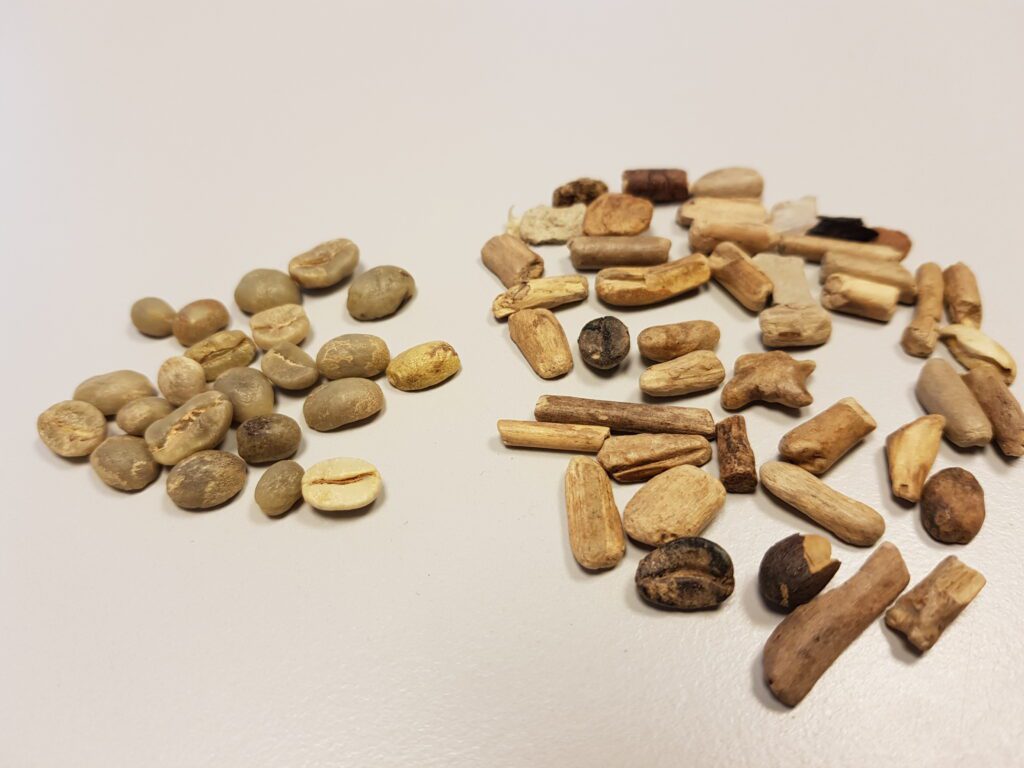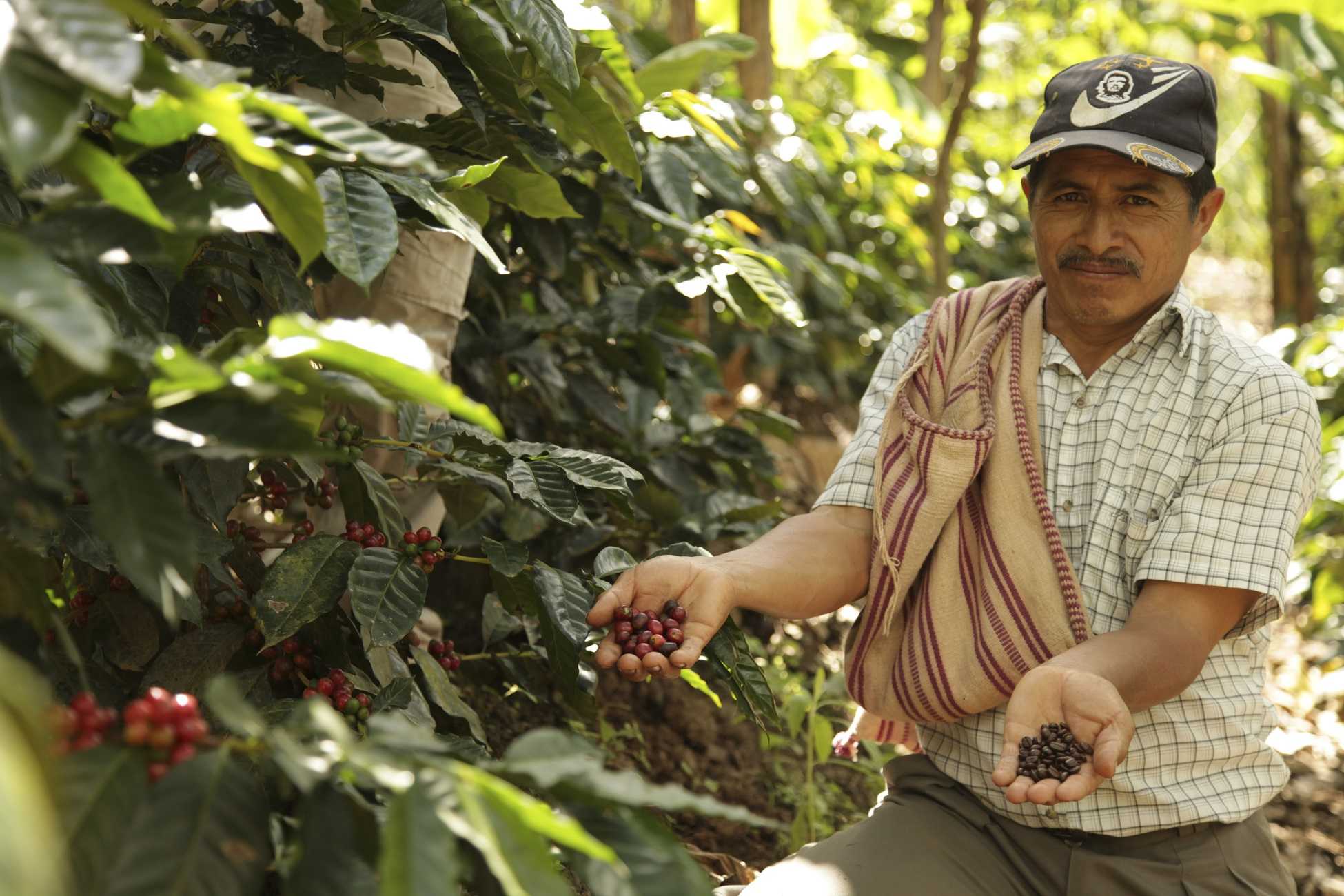LONDON, UK – Antwerp-headquartered Miko Coffee prides itself on providing the highest quality coffee beans and commercial coffee machines. As the company proudly states on its website, it “makes no sacrifices, cuts no corners and takes no easy routes” when it comes to quality. So, when small sticks and other foreign material in its coffee beans were causing customers’ grinders to jam, Miko Coffee invested in a Sortex A.
The optical sorter from Bühler is providing a superior coffee bean sort and since its installation the company has reported a 95% fall in customer complaints – generating significant time and cost savings.
Coffee is still one of the world’s favorite drinks with two billion cups consumed every day and Miko Coffee with its rich history dating back to 1801, when Leonardus Michielsen opened his grocery shop, is one of the world’s oldest coffee roasters.
Exporting to more than 40 countries, the family-owned business with its unyielding commitment to excellence, provides high-quality coffee beans and commercial coffee-making machines to top hotels, cafés, Michelin-starred restaurants, events and exhibition centers, golf clubs, hospitals and a wide range of retail businesses. With more than 600 employees, Miko owns and manages coffee-service subsidiaries throughout Europe and in Australia.
Stick issue
“In late 2013, some customers were contacting us because their coffee machines were becoming jammed by tiny pieces of stick, which remained in coffee beans we’d supplied,” remembers Bart Laps, Plant Manager of Antwerp-based Miko Coffee. “We were having to visit customer premises on technical call-outs, to remove sticks, clean machines and get them up and running again.”
This was creating an additional time and cost burden for Miko Coffee, while impacting its customers and falling short of the company’s commitment to high quality.
Foreign material (FM) in green coffee beans, usually Robusta, can include small pieces of stone, sticks and occasionally plastic and glass. Laps adds “Some batches of green coffee beans can contain many sticks, because when coffee is dried on the ground, these small pieces can easily become collected with the coffee beans. Users often pour whole bags of coffee into their machines, which can then become blocked if any small pieces are still present.
“We also make blends of coffee, so if just one batch from one supplier contains FM, it can affect the whole blend. Some batches contain sticks – 10mm or smaller – while others don’t. And not all of our suppliers have a sorter, so we must sort them ourselves to removes FM before the beans can be roasted.”

Passing the test
“Miko approached us and in March 2014 we carried out trials for them,” recalls Netherlands-based John de Vor, Sales Director of Q-Process, the agent in the Benelux countries for Sortex optical sorting solutions. “They were extremely impressed with the results and soon took delivery of their Sortex A optical sorter.”
The Sortex A range of optical sorters have been designed to help processors overcome difficult sorting requirements. They feature advanced inspection technology that identifies differences based on structural properties, enabling the sorter to simultaneously reject unwanted material of the same shape and color as the coffee bean.
Previously, Miko Coffee had used a machine to sieve coffee beans before roasting, but its small mesh meant perfectly good coffee beans were being needlessly sorted out, which affected yield. Using a larger mesh would boost yield, but only remove larger FM. And, to compound the problem, wood has almost the same specific weight as green coffee and can therefore not be removed by a destoner.
“Miko Coffee now uses a large-mesh sieve machine to remove larger FM, before passing them through the Sortex A. This leads to much less waste, but with far more FM removed, including small pieces of wood,” de Vor explains. “Miko Coffee has a capacity of 6000kg of green coffee beans per hour, with a final reject, after resort, of less than 0.1%, with a very high FM concentration.”
Quality and sustainability with Sortex A
“Since we installed our sorter, customer complaints and resulting technical call-outs caused by sticks jamming and damaging machines have fallen by 95%,” Laps reveals. “And because we’re so satisfied – every bean we now process is sorted through our Sortex A.” The time and cost savings Miko Coffee has made since installing its Sortex A has helped to offset its investment costs.
“Miko Coffee’s sort is now more accurate, too, because the Sortex A is much better able to differentiate between sticks and coffee beans that are the same color,” adds de Vor. “Quality and safety are key for Miko Coffee, which is why their entire production facility is BRC certified (Issue 8) – an internationally recognised mark of food safety and quality.”
Each day, Miko Coffee takes delivery of one or two truckloads of green coffee, amounting to some 8,000 tons a year. About 50 tons of green coffee are sorted each day, with the Sortex A running for 10 hours. Every bean is sorted before it is blended and roasted, which ensures higher-quality, cleaner coffee, free from defects and FMs.
Miko Coffee uses its Sortex A when processing green coffee for all of its popular brands, including Freehand Coffee, Grand Milano Coffee, Miko Coffee and Puro Fairtrade Coffee (www.purocoffee.com). Puro Fairtrade Coffee ensures that farmers “receive a fair price for their beans and a little bit extra to invest in schools, reforestation and agricultural improvements”. Money from Puro sales is used to buy and protect rainforests in countries where coffee beans are grown (www.worldlandtrust.org).
Knowledge and experience
Asked why Miko Coffee chose Sortex, Laps replies: “We chose Bühler for its reputation and they have a business unit dedicated to coffee processing. We visited their application center in London and were very impressed with their sorters and their knowledge and experience.
“We looked at other suppliers, but Sortex is a very well-known optical sorting brand and Bühler had the most experience in coffee processing and were very professional.”


















